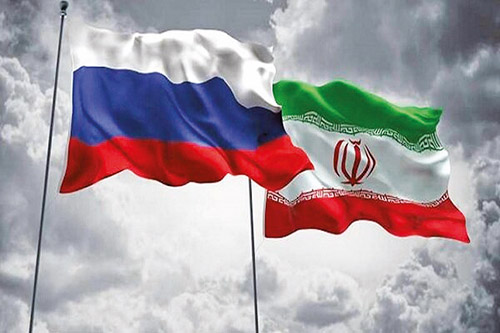
Is the Biden administration ignoring the Russia-Iran connection?
Does the United States realize the relevance of the Russian invasion of Ukraine to its current negotiations with Iran’s ayatollahs?
For example, the invasion exposes the substantial gap between the norms, logic and state of mind of the democratic United States and the despotic, ruthless Russia. Just as Russia has proven willing to sustain economic hardship to advance its deeply rooted vision, so will the fanatic, despotic and megalomaniacal ayatollahs.
It also once again highlighted the distance between Western conventional wisdom and global reality—as did the U.S. failure to assess the nature of the 1979 Islamic Revolution and the consequences of the 2015 nuclear deal with Iran.
The Russian invasion has also shattered the conceit, held by many policy makers in the United States and the West, that major shooting wars and ground invasions are a thing of the past. It has reminded us that our reality is fragile, unpredictable and even explosive.
It has exposed the unrealistic assumption that the diplomatic option supersedes the military option in the struggle between global democracies and rogue regimes such as that of Iran.
Indeed, at the foundation of the negotiation with Iran’s ayatollahs lies the assumption that most of the globe subscribes to Western values such as the desirability of peaceful coexistence, democracy, human rights and good-faith negotiation. Iran and other rogue regimes have repeatedly proven this assumption to be false.
The Russian invasion has accentuated the centrality of a military posture of deterrence in the face of rogue entities—such as Iran—which adhere to a deeply rooted, fanatic vision.
It has underlined the fallacy of the U.S. assumption that waiving the military option prevents military escalation. In fact, it erodes the U.S. posture of deterrence, thus whetting the appetite of rogue regimes and therefore intensifying the risk of military escalation.
The Russian invasion has also emphasized the critical role played by history in coalescing a nation’s ethos, vision and policies. This role is also evident in the conduct of Iran’s ayatollahs, which derives from the ferocious 1,400-year confrontation between Sunnis and Shi’ites, from the 680 C.E. Battle of Karbala—the “big bang” of the Sunni-Shi’ite conflict—to the 1501 C.E. declaration of Shi’ism as Iran’s official religion to the 1979 Islamic Revolution. The revolution has been the chief inspiration for Iran’s rogue conduct from the Persian Gulf through Africa and Latin America, all the way to the U.S.-Mexico border.
Russian President Vladimir Putin has reminded the West to be wary of rogue regimes, whose aim remains subjugation and submission, whether in Eastern Europe or the Middle East.
Iran’s ayatollahs have systematically and proactively attempted to topple every “apostate” Sunni Muslim regime (especially Saudi Arabia), and to bring into submission the “non-believer” West (especially “the Great American Satan”).
The Russian invasion is a reminder that leopards don’t change their spots, only their tactics.
Ignoring the relevance of the Russian invasion of Ukraine to the U.S. negotiations with Iran would be tantamount to ignoring the lesson of the U.S./Spanish philosopher George Santayana: “Those who cannot remember the past are condemned to repeat it.”
Yoram Ettinger is a former ambassador and head of Second Thought: A U.S.-Israel Initiative.










